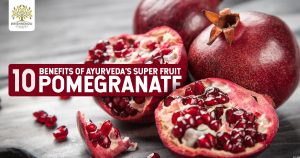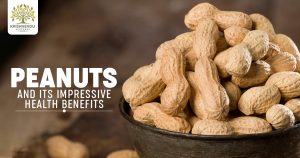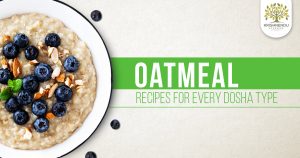Blog
Incredible Health Benefits of Fenugreek Seeds
A common ingredient in Indian dishes and an herb known for its healthy nutritional profile, Fenugreek or Methi is one of the oldest staple remedial plants loaded with a multitude of vitamins, nutrients and minerals. In addition to this, it is also known to possess antioxidant, antimicrobial, antiviral, anti-inflammatory and anti-diabetic properties. Below listed are a few incredible health benefits of including Fenugreek seeds in your daily diet: 1) Aids Digestion Fenugreek seeds help in treating various problems related to digestion such as indigestion, gastritis and constipation. Ayurveda recommends soaking fenugreek seeds in water overnight and consuming it before meals the next day. 2) Control diabetes These seeds help stabilize blood sugar levels in the body and stimulate insulin production. Incorporating fenugreek seeds in your diet is highly recommended for people with diabetes. Having 500 mg of soaked seeds twice a day will help bring down the blood sugar levels considerably. 3) Reduce cholesterol Being a rich source of steroidal saponins, fenugreek seeds are known to lower cholesterol and LDL or the bad cholesterol levels, as it intercepts the absorption of cholesterol and triglycerides in the body. Take 2 ounces of fenugreek seeds every day to reduce cholesterol levels. 4) Cure heartburn and acidity Fenugreek seeds are found to reduce the severity of heartburn and acidity as it increases the protective mucus coating of the intestine and stomach. Consume fenugreek seeds on a daily basis along with your food or with water for optimum results. 5) Reduce cardiovascular diseases Due to the presence of Galactomannan, fenugreek is considered to be beneficial for the heart as it lowers blood pressure and also reduces the risk of developing heart diseases. To boost your heart health, it is recommended to drink 1-2 cups of fenugreek seed tea every day. 6) Promotes weight loss The natural soluble fiber in fenugreek is found to be very effective in losing weight. Fiber content in fenugreek seeds promotes a feeling of fullness and prevents overeating. These seeds must be soaked overnight and chew it on an empty stomach the next day morning. 7) Treat fever and sore throat Soak one tablespoon of fenugreek seeds in half cup of water overnight and strain it the next day morning. Drink this water to reduce fever and other symptoms associated with it. You can also mix some lemon juice and a teaspoon of honey to it. Else, take 1 or 2 teaspoons of fenugreek seeds, few drops of lemon juice, one teaspoon of honey and any herbal tea. Drink this thrice a day to treat sore throat and high fever instantly. 8) Help beautify skin Fenugreek is considered to be a harmless and an excellent alternative for all your contemporary creams. It can be used as an easy and effective homemade beauty treatment. Boil the seeds in water and allow it to cool. Use this water to wash your face daily to get a nice glow to your skin. 9) Reduce joint pain The anti-inflammatory property in fenugreek makes it a good remedy for reducing joint pain caused due to arthritis. Soak one tablespoon of fenugreek seeds and munch on it daily in the morning for best results.



10 Benefits of Ayurveda’s Super Fruit – Pomegranate
Hailed as a super fruit, pomegranate is good for all body types. Prized as a tridoshic and balancing healthy fruit, pomegranate is loaded with umpteen health benefits. Proven to be a rich source of antioxidants, vitamin C, potassium, and polyphenols, it is recommended to have one pomegranate a day to boost immunity and strength of your body. People tend to avoid having this super nutritious fruit because of the time it takes to get the seeds out of its covering, thereby missing out on some good nutrition. In Ayurveda, the bark, juice, fruit and root is used for treatment. Though it is sour in taste, it is astringent and balances Pitta in particular. Explore some of the key benefits of having this super fruit: 1) Good for Blood Circulation Including pomegranates in your daily diet will not only increase blood circulation in your body but it also activates the production of hemoglobin to increase the count of Red Blood Cells (RBC) in your blood. It improves the strength of your body and boosts metabolism to ward off fatigue, instances of low blood pressure and anemia. 2) Aid Digestion This wonder fruit is loaded with plenty of vitamins and minerals and also has ample amount of fibers that aid digestion. It is recommended to have pomegranate during stomach ailments like cholera, gastric issues and diarrhea. 3) For Clean Skin Pomegranates are good for people suffering from acne issues as it helps in clarifying your blood, hence keeping skin problems like pimples at bay. Eating pomegranates on a daily basis helps you get flawless skin and the vitamin C content in it makes your skin looking young, thereby, slowing down the aging process. It is also good for reducing wrinkles, hyper-pigmentation, and damage caused due to sun exposure, leaving the skin soft and glowing. 4)For a Healthy Heart Rich in antioxidants and anti-inflammatory properties, pomegranates are found to help prevent and treat cardiovascular diseases. It keeps your heart healthy and strong due to the presence of plant compounds. 5) Promotes Weight Loss High fiber content in pomegranates promotes weight loss. This super-nutritious fruit boosts your metabolism and is also a great source of vitamin K and folic acid. 6) Keeps Diabetes Levels in Check This fruit helps you keep a check on your elevated blood glucose level. Pomegranates contain low sugar content and have anti-diabetic properties which reduce the sugar levels in blood, therefore contributing effectively to the treatment of diabetes. 7) Fight Cancer Anti-cancer properties found in pomegranates reduce the spread of cancerous cells in our body. Using pomegranate seed oil is suggested to effectively prevent the risk of developing breast cancer. 8) Support Kidneys and Liver Pomegranates are good for the cleansing process and expel harmful toxins from the body. Having pomegranates protect the liver and helps rebuild in case of any damage caused due to alcohol consumption and replenishes its natural functioning. 9) Balance Blood Pressure Pomegranates are anticoagulant and facilitate the smooth flow of blood throughout the body, being an effective blood thinner. This helps in controlling blood pressure in the body. Pomegranates are great for pacifying Pitta and are useful for people experiencing high blood pressure. A recent study showed that a person with hypertension experienced a significant reduction in blood pressure after consuming 150ml of pomegranate juice every day for two weeks. 10) Improve Memory Pomegranates contain polyphenols which are linked to improving brain health and memory in adults. It also slows down the degenerative process of Alzheimer’s diseases.



Peanuts and its Impressive Health Benefits
Peanuts, also known as groundnuts, are members of the legume family along with beans and peas. These are considered the best sources of protein in the plant kingdom. Peanuts can be consumed in different forms like raw, salted, boiled or dry roasted and it is found in a wide variety of products ranging from peanut cookies, healthy peanut butter, no-bake oatmeal, and peanut bites, peanut bars, etc. Packed with healthy fats and high-quality protein, peanuts are an excellent source for nutrition but are fairly high in calories which makes its consumption quantity to be reduced to a handful and not more. Though it is an exceptionally good source of protein, ensure that you are not allergic to its proteins, arachin and conarachin which are in abundance that cause life-threatening reactions to some. Take a look at some of the incredible health benefits of having peanuts: Good for muscle Peanuts contain vitamin B that prevent muscle cramps and spasms, increases energy and helps the body absorb protein and fat effectively. It also boosts metabolism and makes a perfect pre and post workout food. Lowers cholesterol Peanuts contain monounsaturated fats and are excellent sources of fiber which results in lowering of LDL or the bad cholesterol levels. The copper content present in peanuts aid in increasing good cholesterol levels and reduces bad cholesterol. Fight depression Being a good source of tryptophan, an essential amino acid considered to be vital for serotonin production, peanuts can be consumed to regulate a person’s mood. Depression results in a reduced release of serotonin from the nerve cells in the brain and tryptophan in peanuts is known to raise serotonin’s antidepressant effects when there are higher levels of serotonin in the blood. Boosts memory Peanuts are tagged as “brain food” due to the presence of vitamin B3 or niacin content. It has a positive effect on the functioning of the brain and helps boost memory power. Also, being a good source of vitamin E, it protects one against Alzheimer’s and age-related cognitive decline. Protects the heart Consuming nuts are linked to protecting the heart and reducing the risk of developing heart diseases. Peanuts are a rich source of heart-friendly monosaturated fats and antioxidants like oleic acid. Have a handful of nuts and peanuts at least three to four times a week to reduce the risk of coronary and cardiovascular diseases. Rich in protein Peanuts contain high levels of protein content and significant amounts of zinc, iron, magnesium, and vitamins like vitamin D. The high iron and protein content in peanuts make them an excellent replacement for red meat, especially for vegetarians and vegans. Promotes weight loss Though peanuts are quite high in calories, consuming it in moderate quantities regularly is associated with a lowered risk of weight gain. Research has proved that those who ate nuts at least twice a week are less likely to put on weight than those who did not eat them. Enhance fertility Women who took 400 micrograms of folic acid on a daily basis before and during early pregnancy had lower risks of having a baby born with serious neural tube defects. And peanuts containing a good amount of folate it is recommended to have it on a regular basis in a moderate quantity. Prevent gallstones Peanuts help prevent gallstones and eating an ounce of nuts, peanut or healthy peanut butter a week helps in lowering the risk of developing gallstones by 25%. Protects from cancer Peanuts contain a form of phytosterol called beta-sitoserol (SIT) in high concentrations. They not only protect you from cardiovascular diseases by interfering with cholesterol absorption but also protect you against cancer by inhibiting the growth of tumor.



An Ayurvedic Approach for Psoriasis
Psoriasis is a common skin condition that causes rapid skin cell reproduction which results in dry, red patches of thickened skin. It is a non-contagious skin disease that results in dry scales and is thought to be caused due to the rapid buildup of skin cells. According to Ayurveda, the major cause of the energy imbalance that leads to psoriasis is diet and food. The energy, Vata and Kapha, control bodily function and growth respectively, can be imbalanced due to unhealthy food habits, wrong food combination, toxins or Doshi vistas ( accumulated in the digestive tract) and leads to psoriasis. A person suffering from psoriasis experience itching and burning, reddening, and thickening of the skin, and development of silver-colored scales. Severe symptoms include severe shedding of the skin in the affected area and blistering. Also, it could differ for each type of psoriasis which includes plaque psoriasis, scalp psoriasis, nail psoriasis, guttate psoriasis, and inverse psoriasis. Ayurvedic perspective of Psoriasis The factors that cause psoriasis, according to Ayurveda, are plenty and the major one is heredity. It is said that there are 15% chances for a child to suffer from psoriasis if any one of the parents is affected by the condition. If both the parents are affected, then the possibility for the child to be affected by it is 60%. A person’s food habits such as increased intake of salty food, bakery products, spicy food, junk food and fast food, refrigerated or cool food, etc. contribute to psoriasis condition. A sedentary lifestyle, excessive mental pressure, stress, and unhealthy eating are also crucial factors. The major step towards treating psoriasis in Ayurveda is to regain the lost balance by detoxifying the body through Panchakarma treatments, especially medicated Enema, Virechana, and Vamana. Doing Shirodhara with medicated oils on the scalp would be beneficial for those suffering from scalp psoriasis. Lifestyle management, stress management, diet management, counseling and inclusion of yoga asanas are also a part of the treatment process. The schedule for treatment comprises of – internal medicines such as herbal decoctions and medicated ghee is consumed, depending on the type of dosha of the affected person. – detoxification through Vamana (vomiting) and Virechana (purgation). – Thakra Dahara or the process of dripping medicated buttermilk overhead. – Basthi or medicated Enemas are done for stipulated days. – a strict diet that supports the treatment process is also prescribed. Home remedies to manage psoriasis Apply fresh cabbage leaves over the affected area of skin. It is one of the most effective home remedies to manage the condition. Drink 1/2 cup of fresh cabbage juice daily to ensure quick recovery from psoriasis. Boil four marigold flower heads in four cups of water. Allow it to cool and then apply on affected areas of the skin. Take a handful of fresh jasmine flowers and grind them. Apply it on the affected parts. Powder some almonds and boil it thoroughly in water to make a paste. Apply this mixture on the affected parts and wash it off the next morning with water. Olive oil can be applied topically for a soothing effect. Taking a lukewarm bath using mineral oil, milk or olive oil gives relief from itching.



7 Yoga Mudras and its Benefits
The term Mudra in Sanskrit means “seal” or “closure” and these gestures are mainly used in yoga and meditation to direct the flow of energy within the body. Different areas of the hands are connected while performing mudras which stimulate various parts of the brain to create a specific energy circuit in the body and mind. Each of our fingers represents the five elements of the universe. The thumb represents fire and universal consciousness; index finger for air and individual consciousness; middle finger for akasha or connection; ring finger for the earth, and the little finger representing water. These five elements must be well-balanced to keep diseases at bay and one way of maintaining it is by practicing mudras. Here are some of the commonly used mudras in Ayurveda you can perform on a daily basis: 1.Anjali Mudra Anjali Mudra is considered to be the most familiar mudra where the palms are brought together in front of the heart space. Lightly press your palm against each other while lifting the heart center towards your hands. People practicing yoga begin and end their sessions by articulating the word “Namaste” along with the usage of this mudra, which symbolizes love and honor towards you and the universe. Practicing this mudra helps in connecting the right and left hemispheres of the brain. It also connects the individual’s spirituality and promotes respect for others and oneself. Also, Anjali Mudra acts as a natural remedy to beat stress and anxiety. 2.Gyana Mudra Perhaps the most used mudra in yoga, Gyana Mudra or the chin mudra brings a great sense of openness and calmness in meditation. It is done by bringing the tips of your thumb and index finger together, facing upwards, while keeping the other fingers together and lightly stretched. This mudra symbolizes the unity of fire and air and also the unity of universal and individual consciousness. The chin mudra is said to be a gesture of knowledge and enhances concentration and creativity. 3.Buddhi Mudra Touch your thumb to your little finger and hold the other three fingers straight to practice this mudra. It is performed for attaining mental clarity and can prove to be beneficial when you need to understand intuitive messages from subconscious ones. It also helps in improving the communication of dialogues, both internal and external. 4.Prana Mudra Prana is the vital force within all beings and performing this mudra provides energy and health. It is considered to be one of the most important mudras because of its ability to activate dormant energy in our body. Touch the ring and little fingers to the tip of the thumb and keep the other fingers straight to perform this mudra. Performing this mudra helps in improving eyesight, reduces deficiency of vitamins, tiredness and increases the resistance of the body towards diseases. 5.Surya Mudra Intended to boost solar or fire element in the body, Surya Mudra, when practiced regularly, helps in improving metabolism and digestion. Bend the ring finger to the base of your thumb in such a way that it touches the knuckle of your ring finger. Stretch the other fingers straight without stressing. Practicing Surya mudra proves to be beneficial in reducing the heaviness of the body and wards off colds as it increases core body temperature. 6.Apana Mudra Apana Mudra is ideal for digestion and cleansing of the body. It eliminates waste material and toxins from internal organs of the body and detoxifies the entire system to leave you feeling light and active. To perform this mudra, touch the ring and middle fingers to your thumb while sitting in a relaxed posture. Apana mudra can be performed to overcome conditions like diabetes, constipation, urinary infection, stomach aches, etc. 7.Vayu Mudra Performing Vayu Mudra helps in battling diseases relating to air imbalances like gas-related pain, bloating, flatulence and abdominal discomfort. It regulates Vata-related issues and brings air elements back to its previous and proper flow. It is associated with happy and healthy living when practiced for a longer time. Vayu Mudra does wonders for people expecting to lose weight or for those suffering from neck stiffness and chest pains. It builds immunity and protects your body from cold and cough. This mudra might seem similar to Gyana Mudra but here, the thumb is connected to the knuckle or hump of the index finger. Press down on the index finger, depending on your comfort level. Ensure that you do not strain as this mudra aims at relaxing the joints and not stressing it.



Oatmeal Recipes for Every Dosha
According to Ayurveda, any food is said to be medicinal when it helps in creating a balance between the doshas and the system, and also one which ignites the digestive fire, Agni. Oatmeal is one such food that helps balance Vata, pitta and Kapha doshas when prepared correctly. The use of sweeteners while having oatmeal could be beneficial for some while it could not be for the others. For instance: White sugar, made from sugar cane causes an imbalance to all doshas as it is heavily refined. Jaggery is good for Vata dosha as it is made from sugar cane and date sugar or palm sap (or sometimes a combination), is less refined and has 20 to 30% more moisture than another type of sugar. But consuming jaggery would not be beneficial for pitta and Kapha as it aggravates them. Maple syrup is considered to be the best sweetener for pitta and suitable for Vata dosha when used in moderate quantity. It contains vital nutrients such as manganese and zinc and is considered to be cool, heavy and sweet. Honey is ideal for Kapha dosha and should be consumed raw and in small quantities. Honey, when cooked, becomes difficult to digest and therefore, creates ama in the system. Using dried fruits in oatmeal while cooking is a natural sweetener. Adding raisins, dates, apples and ripe bananas to oatmeal are good for Vata dosha whereas dates, raisins, and figs are favorable for pitta dosha. Apricots, apples, raisins, and cranberries are best for Kapha dosha. If the strength of Agni is low or if the digestive system is weak, it is better to consume plain oats. Never combine oats with yogurt and fruits as this pairing can impair Agni and create ama. Adding almonds, sunflower seeds or pumpkin seeds to oats is best for all dosha types. Here are some Ayurvedic oatmeal recipes to try based on the type of dosha or otherwise the recipe for Dosha Balancing Oatmeal Bowls: 1)For Vata Dosha Oatmeal preparation for Vata should be soupier inconsistency and the type of oats used should be organic rolled or quick-cooking oats. Ingredients: A small amount of freshly chopped ginger Pinch of cinnamon powder, cumin powder, mineral salt, nutmeg, and cardamom powder Maple (syrup or sugar) as required 1 tablespoon nut butter 1 teaspoon ashwagandha powder Water as required 2) For Pitta Dosha People with pitta dosha need more substance in their breakfast and thus, using steel cut oats or quick-cooking steel-cut oats are best as they are less processed and fills the tummy more. Ingredients: 1 date 8-10 soaked and peeled almonds Pinch of cinnamon powder and cardamom powder 1 tablespoon coconut milk Maple syrup as required 3)For Kapha Dosha Using steel-cut or quick-cooking steel-cut oats will benefit well for Kapha dosha due to its gritty textured quality. Ingredients: The small amount of freshly chopped ginger Pinch of turmeric powder 1 teaspoon dried coconut 1 tablespoon dried currants 1 tablespoon chia seeds or pumpkin seeds (Follow the normal routine for preparing oatmeal for making these dosha balancing oatmeal bowls)